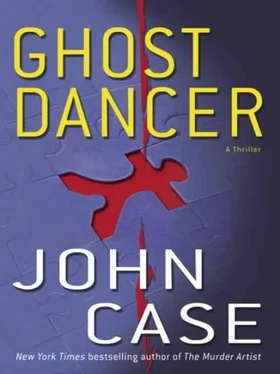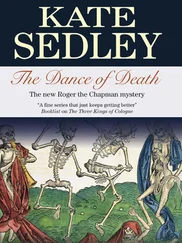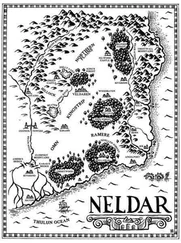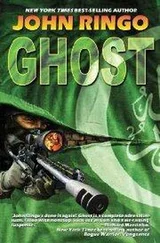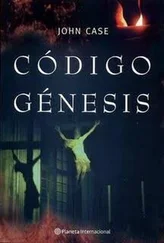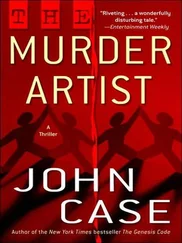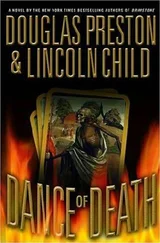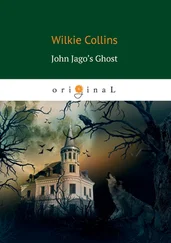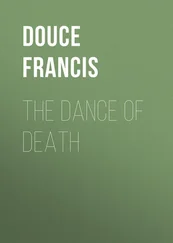The old man shrugged. Then had a second thought. “And I suppose you’ll be traveling on your driver’s license, will ya?”
Burke shook his head, and finished his pint. Then he reached into the pocket of his battered waxed jacket, and produced an Irish passport. “Dual citizen,” he said.
The old man cackled.
BELGRADE | APRIL 11, 2005
Burke felt like a terrorist as he handed his virginal Irish passport to the man behind the glass. The Immigrations officer leafed through its pages with unconcealed boredom, then pushed it back without bothering to stamp it. With an airy gesture, he waved Burke on his way and nodded to the next person in line.
Burke felt the thrill that little boys feel when they’ve gotten away with something, especially when the getting away defeats the machinations of a martinet like Kovalenko. Through the wonders of dual citizenship, Burke was able to travel with impunity, a citizen of Ireland and the European Union.
Erin go bragh, he thought as he went outside to the taxi queue in front of the terminal. Soon, he was bouncing along in the back of a Zastava cab. The outskirts of the Serbian capital were like those of any other European city, an uneasy conglomeration of warehouses and farms, office buildings and apartment blocks. Heading downtown, Burke was impressed by an efflorescence of graffiti, the unfamiliar Cyrillic tags bristling with swastikas and crosshairs.
The city itself was a surprise. He wasn’t sure what he expected to find – surly Serbs moving amid the ruins of NATO bombings, perhaps.
Instead, he found a graceful city at the juncture of two rivers, the Sava and the Danube. There was snow on the ground, but the fresh green of spring adorned the trees. The cabdriver apologized for the weather.
“Freak weather, this spring. Very cold. Now I am asking, where is global warming when you need it?”
The riverfront was lined with floating bars and restaurants, the populace seemed well dressed and prosperous, the streets were clean. The taxi chuffed past graceful and beautiful buildings from another era.
And then there was the Esplanade.
Boxy and utilitarian, the hotel was a concrete cube entirely devoid of architectural flourish or embellishment. As without, so within: Burke’s room was a clean cell, redolent of some Serbian PineSol.
Why did d’Anconia decide to stay at this place? According to Kovalenko he had three or four million dollars coming in. You’d think he’d be ready to splurge.
Or maybe not. He hadn’t seemed like someone who was used to having money. He dressed well, but the clothes looked new, and Burke got the impression that he was playing a role. He was definitely rough around the edges, staring at Burke’s ruined ear and commenting on it. So maybe he was used to places like this.
The front desk was manned by Vuk Milic, a man of about Burke’s own age. With his suit, tie, oiled hair, and earnest expression, Milic was someone Burke might have encountered at the desk of a Comfort Inn outside D.C. His English was good, if accented.
When he was talking about room rates and checkout times, Milic was fluent and almost chatty. When the conversation turned to one of the hotel’s previous guests, a man named d’Anconia, Milic frowned. “The particulars of guests cannot be discussed,” he said, tapping his fingers on the desk. “This is not a possibility.”
Burke folded a twenty-euro note and slid it across the desk so that it came to rest in front of the desk clerk. Milic regarded the bill with a cold eye. “You would like me to change this?”
Burke shook his head. “No,” he said, “I don’t need any change.”
The bill vanished.
Milic began to type. After a moment, he flashed a smile, and said, “Gaspodin d’Anconia has been here from twenty-four January to second February.”
“‘Gaspodin’?” Burke asked.
“‘Mister.’” Milic returned his eyes to the monitor. “He rents two films for TV: La Genou de Claire, and Sorority Whores. ”
“Hunh…”
The desk clerk was unstoppable. “Three times, he eats in restaurant, each time fish. Makes two telephone calls, long distance. One-two-three, five times he has drinks in bar. Always beer.
Burke stared, dumbfounded. What if he’d given the guy a hundred? Admittedly, none of the information was useful, but… “Who’d he call?”
Milic peered closely at the monitor. After a moment, he scribbled some numbers onto a three-by-five card, and handed the card to Burke.
“That’s it,” Milic said. “There’s nothing else.”
Burke believed him. He turned to go, then turned back again. “You know why he was in Belgrade? I mean, was he on business or-”
“He is here for Tesla,” Milic told him.
Burke frowned. “What’s Tesla?” He seemed to recall, there was a rock band, but…
The desk clerk was looking almost hurt. “Nikola Tesla,” he said. “The inventor. He is Serb.”
Jackpot, Burke thought. “So he was meeting this inventor?”
Milic snorted in derision, and shook his head. “No, I don’t think so. Tesla is dead, maybe fifty years.”
“Oh,” Burke said, the enthusiasm draining from his voice.
“Your friend-”
Burke started to correct him, but thought better of it.
“-he’s here for meetings. I don’t know the word in English. But many people come…”
“So, it’s like a symposium,” Burke suggested.
The desk clerk shrugged. Then he cocked his head and peered at Burke. “You don’t know Tesla?”
Burke looked apologetic. “I forgot,” he offered.
Milic couldn’t believe it. “But this is the most famous Serb of all time! He is more famous than-” he looked up, as if searching the ceiling for the names of celebrated Serbs. Finally, he grinned. “More famous than Vlade Divac!”
“Really!”
“Yes! Is true. He’s inventing electricity!”
“I thought that was Edison,” Burke suggested.
The desk clerk scoffed. “This is what you Americans say. But Tesla, he invents one kind of electricity, Edison invents the other, not-so-good kind. Then, Tesla is inventing many, many things. Twentieth century! This is his invention.”
Burke laughed.
The desk clerk scowled. “Your friend, he knows about Tesla.”
“Does he?” Burke asked.
“Yes, he gives speech! At the symphony.”
Burke didn’t know what he meant. Then he understood. “Symposium.”
“Yes! First, he studies at the Institute-”
“What institute?”
“Am I talking to wall?” Milic demanded, as if Burke were a student with attention deficit disorder. “Tesla Institute! After this, he goes to symphony, and gives speech!”
They were interrupted. First one guest, then another, came to request their keys. No card keys here. These were in the old European style, big keys attached to metal eggs so heavy that only the rare guest would be tempted to take his key along.
“So this symposium,” Burke asked. “Where was it?”
But the spell was broken. Either the twenty euros had been used up, or Milic had decided that he’d said enough. He averted his eyes and began stacking some papers into a little pile. “More, I don’t know,” he said. “Maybe in the cafe, someone knows.” He shrugged. “Also there is the possibility of Ivo.”
“What’s Ivo?”
“Doorman. He is back tomorrow.”
The bar was empty except for two women perched on stools at a tall table. A girl with spiky hair and bad skin stood behind the counter, rinsing glasses. She did not remember anyone named d’Anconia or, for that matter, an American by any other name. “I’m here in the day,” she told Burke. “Tooti, she’s coming at seven. You could try her.”
Читать дальше
